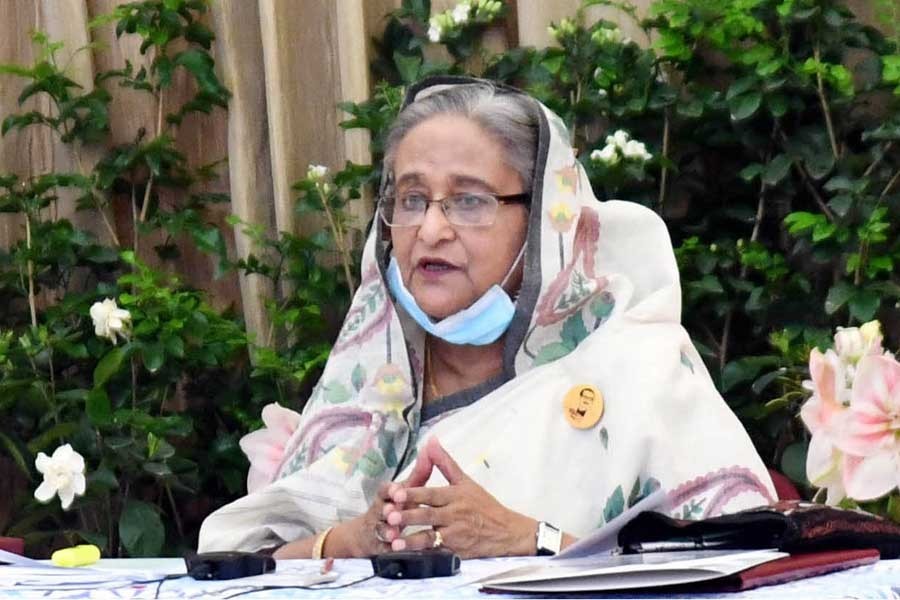Staff Correspondent
Published:2020-12-09 15:28:12 BdST
Bangladesh experienced worst form of genocide in 1971: PM
Prime Minister Sheikh Hasina has said Bangladesh is among the few countries that have experienced one of the worst forms of genocide during the War of Liberation in 1971.
The premier issued separate messages on Tuesday on the occasion of the ‘International Day of Commemoration and Dignity of the Victims of the Crime of Genocide and of the Prevention of this Crime’ and the ‘72nd Anniversary of the Convention on the Prevention and Punishment of the Crime of Genocide’.
“Bangladesh is among the few countries that have experienced one of the worst forms of genocide during the War of Liberation in 1971,” said Sheikh Hasina in her message.
She said on 25 March in 1971, the Pakistani occupational forces unleashed brutal mass killings on the innocent civilian population of erstwhile East Pakistan to deny the legitimate demand of the Bengalee nation for self-determination and annihilate their ethnopolitical identity.
“The pain and trauma inflicted on us in 1971 motivate us to seek an end to genocide anywhere and demand justice for the victims of this heinous crime,” she added.
“On the occasion of the ‘International Day of Commemoration and ‘Dignity of the Victims of the Crime of Genocide and of the Prevention of this Crime’ as well as the ‘72nd anniversary of the Convention on the Prevention and Punishment of the Crime of Genocide’, Bangladesh joins the international community in paying solemn tribute to the victims of genocide throughout the history of the world and reiterates its firm commitment to preventing such heinous crimes,” she continued.
She went on saying that to pay deep homage to the victims of the Genocide of 1971 and uphold the country’s commitment to preventing these crimes against humanity; the country’s parliament has decided to observe March 25 as ‘Genocide Day’ and accordingly the day is observed every year.
Despite the obligation of the global community to prevent the crimes of genocide, many innocent people across the globe continue to face atrocities, oppression and systematic persecution caused by xenophobia, intolerance and hatred, she said.
The persecution of the Rohingyas in Myanmar is yet another painful example of such crimes, she added.
For generations, the Rohingyas have suffered marginalisation, atrocities and persecution in their own motherland, the premier said, adding that out of empathy and humanitarian gesture, Bangladesh has stood by these oppressed people and has been temporarily sheltering nearly a million forcibly-displaced Myanmar nationals for the last three years.
“The desperate Rohingyas want to return to their homeland. We urge the international community to help these people to exercise their right to return to Myanmar at the earliest and ensure that they can live in Myanmar in safety and security,” the premier said.
“At the same time, accountability and justice are essential to end the culture of impunity and to stop further atrocities on these innocent people,” she said.
“On this day, let us reaffirm our commitment to ‘never again’ to genocide for the sake of humanity and global peace,” she added.
She called upon the international community to undertake concerted action to address the root causes of genocide, identifying early signs and ensuring justice to the victims to prevent the recurrence of any future genocide anywhere in the world.
Unauthorized use or reproduction of The Finance Today content for commercial purposes is strictly prohibited.


